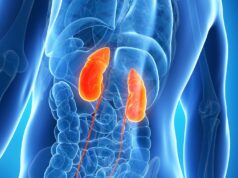 Natera today announced the presentation of data on the clinical utility of its Prospera and Renasight tests across a total of 14 sessions at the 2022 American Transplant Congress (ATC; 4–8 June, Boston, USA). This expands on 13 peer-reviewed papers that have been published over the past 12 months, demonstrating the strong performance of both assays, according to a Natera press release.
Natera today announced the presentation of data on the clinical utility of its Prospera and Renasight tests across a total of 14 sessions at the 2022 American Transplant Congress (ATC; 4–8 June, Boston, USA). This expands on 13 peer-reviewed papers that have been published over the past 12 months, demonstrating the strong performance of both assays, according to a Natera press release.
Phil Halloran (Alberta Transplant Applied Genomics Centre, Edmonton, Canada) presented new data on the latest findings of the global, multisite, prospective Trifecta study, “Combining fraction and estimated amount of dd-cfDNA [donor-derived cell-free DNA] to assess kidney transplant rejection using molecular diagnoses and histology”, at ATC 2022.
The study has demonstrated that the new two-threshold algorithm for the Prospera test—including both dd-cfDNA fraction and quantity—performed better than dd-cfDNA percentage alone in detecting active rejection, with an area under the curve (AUC) of 0.88 when compared against molecular biopsy assessment and 0.82 when compared against histological biopsy assessment.
This analysis in the Trifecta study features 367 fully biopsy-matched samples from the 22 participating clinics in the USA and Europe, the release details.
“The data presented at ATC, combined with other important studies, highlight Natera’s dedication to innovation and continued leadership in testing for transplant rejection and genetic risks for kidney disease,” said Sangeeta Bhorade, chief medical officer for organ health at Natera. “The evidence continues to support the use of Natera technology for aiding clinicians in making major care decisions for transplant patients.”
The Prospera test leverages the company’s core single-nucleotide (SNP)-based, massively multiplexed polymerase chain reaction (PCR) technology to identify allograft rejection non-invasively, and with high precision and accuracy, without the need for prior donor or recipient genotyping, while the Renasight test is a germline genetic test, indicated for patients with diagnosed kidney disease, that screens for hereditary causes of kidney disease and is run from a patient’s blood or saliva sample.











